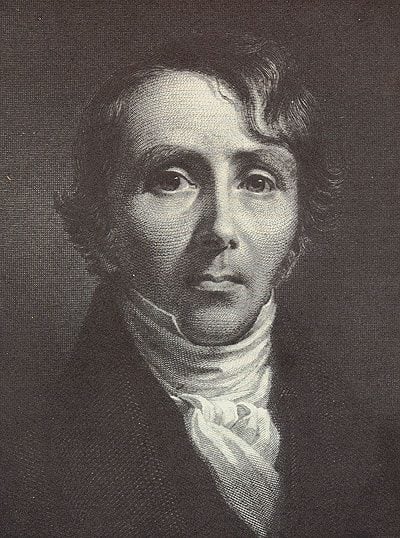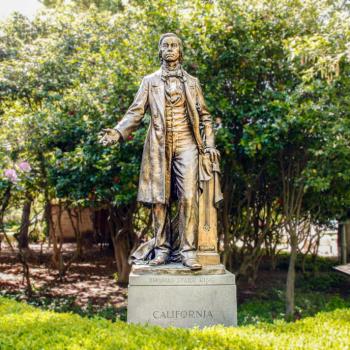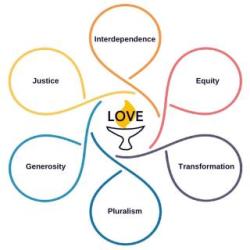William Ellery Channing was born on this day in 1780 in Newport, Rhode Island. I try to acknowledge this every year. He is one of the more important people in my own spiritual life.
William Ellery Channing was the grandchild of one of the signers of the Declaration of Independence. As a child Channing attended with his family an extremely conservative congregation led by the Reverend Samuel Hopkins. Dr Hopkins was a strict Calvinist who preached the utter depravity of humanity and how nearly all of us were destined to damnation.
A turning event occurred for the boy when after hearing a sermon describing the tortures of hell, and afterwards hearing his father comment to Dr Hopkins, “Sound doctrine, sound doctrine,” and then happily whistling as the family walked home from church. The contradictions between the words and the fear that swept over the boy, and what he saw with his own eyes, the loving, happy family, and particularly his doting father gave a lie to the assertion that people were totally depraved and deserving of endless torture.
From Newport Channing went to Harvard College, a school then believed to be the ruin of many a young man. He did find a sense of liberation in the openness he discovered there, which would, in fact, rock the culture and turn it in a new direction. After college he taught briefly in Virginia, where he was shocked by the harsher realities of slavery. After three years teaching he accepted a call to the pulpit at Federal Street Church in downtown Boston, which we now know as Arlington Street Church. If you go there today, right across from the front steps of the church, on the grounds of the Public Gardens there is a larger than life statue of him. It’s worth visiting.
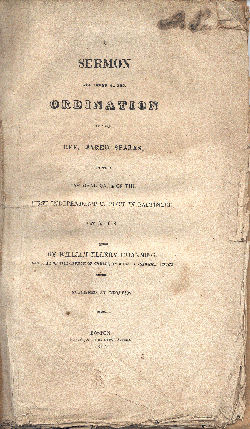 Channing represented the best of a new light. From that pulpit, as Frank Schulman, a Unitarian Universalist scholar and minister notes, he preached “a “more rational and less emotional, more moderate and less dogmatic, religion.” Channing was acknowledged as the foremost preacher of this emerging doctrine. This rational approach to faith began to be called the “Boston religion.” To those who listened carefully, another word began to be used for it. Unitarian. It wasn’t meant kindly. As Schulman observed, “The Calvinists turned from scorn to hatred, from fear to violence.” A spiritual civil war erupted. Calvinists called on “true Christians to separate from the infidels and deny communion to them.”
Channing represented the best of a new light. From that pulpit, as Frank Schulman, a Unitarian Universalist scholar and minister notes, he preached “a “more rational and less emotional, more moderate and less dogmatic, religion.” Channing was acknowledged as the foremost preacher of this emerging doctrine. This rational approach to faith began to be called the “Boston religion.” To those who listened carefully, another word began to be used for it. Unitarian. It wasn’t meant kindly. As Schulman observed, “The Calvinists turned from scorn to hatred, from fear to violence.” A spiritual civil war erupted. Calvinists called on “true Christians to separate from the infidels and deny communion to them.”
Now, there are a number of events that could be called the foundation moment of the Unitarian way as something separate from what would continue to be called Congregationalism. A mighty lawsuit in Dedham is one, for sure. The Dedham controversy led to the institutional breakup. But, I think the most important one, spiritually, happened some years earlier.
It turned on a sermon preached by Channing at the installation of the Reverend Jared Sparks as minister of the Congregational church in Baltimore. It was 1819. And the members of the what is today called the First Unitarian Church of Providence, which I would many years later serve as minister, were intimately involved. It was the custom for churches in those days to support one another at ordinations and installations. When this ordination was announced, and when it was known that the leading light among the liberals, Dr Channing was going to preach that service, perhaps it shouldn’t be a surprise that the members of the Providence congregation decided to be there.
The Prudential Committee of what was then still called the First Congregational Church of Providence, voted to allow the minister, the Reverend Henry Eddis to absent himself from the pulpit for four weeks and to send him and two deacons to Baltimore for this event. The Prudential Committee allocated two hundred dollars for expenses, a fair amount of money. And, because of this the congregation, my congregation if you will, were there at perhaps the most important of the marking events of our liberal religious movement in North America.
The ordination took place and the sermon was preached. It was the sermon I read in that San Diego bookstore. The text Channing preached from was Paul’s first letter to the Thessalonians, Chapter five, verse twenty-one. “Prove all things, hold fast that which is good.” And he did. The Trinity, which had no clear and unambiguous support in Scripture, was tossed. However, that wasn’t the most important thing to him, or for us, people of a liberal religious perspective.
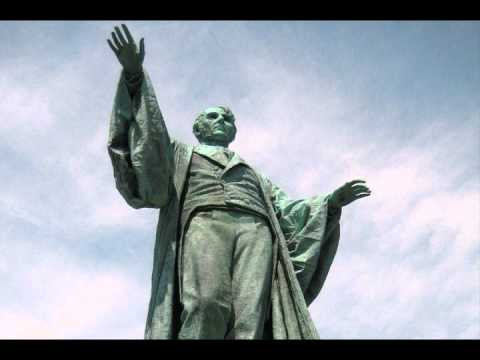 There are two slogans that inform my Unitarian Universalism, one from each strand of our tradition. From Universalism I am guided by the phrase “Love over Creed.” Maybe I preach that most. But, equally important is a phrase that comes from that Boston religion and is most closely associated with William Ellery Channing. And that is “salvation by character.” The term had been floating around for a while. The earliest use I can find is in reference to the preaching of Jonathan Mayhew, who died in 1766. Its sense is the same as was used in condemning our own first minister here in Providence, preaching that “damnable doctrine of good works.” But as this theological principle developed, it was Channing who becomes most closely identified with that particular phrase, “salvation by character.”
There are two slogans that inform my Unitarian Universalism, one from each strand of our tradition. From Universalism I am guided by the phrase “Love over Creed.” Maybe I preach that most. But, equally important is a phrase that comes from that Boston religion and is most closely associated with William Ellery Channing. And that is “salvation by character.” The term had been floating around for a while. The earliest use I can find is in reference to the preaching of Jonathan Mayhew, who died in 1766. Its sense is the same as was used in condemning our own first minister here in Providence, preaching that “damnable doctrine of good works.” But as this theological principle developed, it was Channing who becomes most closely identified with that particular phrase, “salvation by character.”
Now, while what precisely the term means has changed a bit over the years, for us, I think we can hear that our salvation, salve, that is our healing from the hurts and bruises of life, the woundedness we experience, our shortcomings we’re so painfully aware of, our failing our ideals so often, and all the harm that follows these failures of our deepest aspirations, for ourselves and the world, is resolved in how we choose to live, in who we become through what we do. That is salvation by character. Healing, the great healing is in our hands. Channing preached this good news from the rooftops. Who we are counts. What we do counts.
Now, there’s that other phrase associated with Channing. And that is “reluctant radical.” Actually this reminds me of the second moment where Channing provided a turning for me. In the late 1980s, when I was preparing for the Unitarian Universalist ministry, the whole of the experience including seminary and various internships, costing much time, effort and money, culminated in a visit with the Ministerial Fellowship Committee.
Now, within our free association any congregation may call anyone they wish as their minister. That acknowledged, in fact, in practice, and often by bylaw, our UU congregations pretty much only call to our pulpits people in ministerial fellowship. So, this was really important. And, in those days, fellowshipping came down to one meeting. The candidate preaches a ten-minute sermon, and it has to be ten minutes and not a second longer, as they stop you if you haven’t finished. Which, you might imagine can throw a pretty wet towel on what follows. Assuming one gets through that, everyone crowds around a large table, both lay and ordained, all old, old hands on the liberal religious way. And they start asking questions. I recall that hour and I wonder if I had some sense of the terror that ran through the heart of young William Ellery Channing hearing the gate was very narrow, and failure was an option.
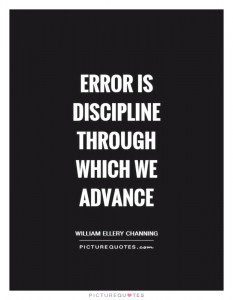 One early question to me was “So, what about that book Reluctant Radical?” It came from the expected reading list of the time. Except it wasn’t the right title. Fortunately, I knew it. The book is Channing: The Reluctant Radical, written by his successor several generations out to the pulpit at Arlington Street, Jack Mendelsohn. Close, of course. But think of the pressure at that moment, so, far as I’m concerned, my caring about Channing and being influenced by him got me through perhaps the most dangerous moment of that interview, well, other than holding the homily to ten minutes. Didn’t miss a beat.
One early question to me was “So, what about that book Reluctant Radical?” It came from the expected reading list of the time. Except it wasn’t the right title. Fortunately, I knew it. The book is Channing: The Reluctant Radical, written by his successor several generations out to the pulpit at Arlington Street, Jack Mendelsohn. Close, of course. But think of the pressure at that moment, so, far as I’m concerned, my caring about Channing and being influenced by him got me through perhaps the most dangerous moment of that interview, well, other than holding the homily to ten minutes. Didn’t miss a beat.
More important for us today, I think, has to do with the nature of that reluctance. There is a place, I suggest for some hesitation, a time to stop, to listen, to reflect. Which, of course, is itself, a difficulty, as sometimes you have to step out and take that stand even without the time to reflect. It isn’t easy. Channing, I feel, shows the difficulty we encounter as the rubber hits the road, as we apply our liberal religious principles where they must be applied, in this lived life.
Channing’s reluctance, his hesitation, to step out unless he was absolutely compelled to do so marked his entire life. There is no doubt he got out in front of a lot of issues. The litany of his stances for the good is long. He also got a lot wrong, at least by my lights, and while not so long, it is also a list.
But it was his engagement with slavery that demands our attention here. It reveals, I think, most of the complexities in applying our principles, and also when and how. Channing came slowly to the public debate. He was torn between his instincts that everything about the institution was evil, buttressed by memories of the horrors he witnessed in Richmond in those first years after college, and his desire it be ended slowly with the least disruption to society at large as possible. What is generally agreed is that his initial assault on slavery when it came in a small book, was, while important, and it was important, still, it was also far from his best work.
Some analysts believe Channing’s reluctance to embrace a more radical stance, perhaps even violence as a part of the abolitionist movement as he wanted it to be was because of his racism. He shared the common assumption African Americans were in some sense inferior to those of European descent. There is no doubt by our standards he falls short in his fuller analysis. But, I think that too simplistic a read. And to leave it there is to miss something he actually offers us.
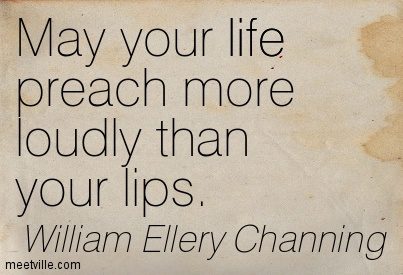 Jack Mendelsohn writes about Channing that he “was not, and could not be a social reformer in the ordinary sense. He breathed religion as he breathed air, in and out, in an unconscious, indispensable rhythm. He measured everything by spiritual ideals. He looked out at the world with God-intoxicated eyes.” In a letter to Lydia Maria Child Channing confessed, “My mind seeks the good, the perfect, the beautiful. It is a degree of torture to bring vividly to my apprehension what man is suffering from his own crimes and from the wrongs and cruelty of his brother.”
Jack Mendelsohn writes about Channing that he “was not, and could not be a social reformer in the ordinary sense. He breathed religion as he breathed air, in and out, in an unconscious, indispensable rhythm. He measured everything by spiritual ideals. He looked out at the world with God-intoxicated eyes.” In a letter to Lydia Maria Child Channing confessed, “My mind seeks the good, the perfect, the beautiful. It is a degree of torture to bring vividly to my apprehension what man is suffering from his own crimes and from the wrongs and cruelty of his brother.”
What is significant is that while he hated witnessing the ills we perpetrate upon one another, nonetheless he didn’t turn away. Even though he was a contemplative by nature, that very openness of heart, which was his spiritual discipline, is exactly what brought him in the end to some very radical places.
Mendelsohn’s sometime harsh assessment of his predecessor rings right for me. Channing “was frequently inept, even naïve, about grasping the intensifying complexities of political and economic struggle in America’ s headlong development, but his integrity as a prophet prevailed.” And what was he prophesying? It is by opening our hearts and our minds that we, in our ordinary human way, can, in the end, find our way through. It is that very reluctance that puts us on the right course, and gives our actions power to actually change things.
Within the alchemical chamber of his reluctance, within that hesitation, he grew. He continued to watch his heart and what was actually going on. And it was regarding the issue of slavery that would become his last prophetic call. Scant months before his death in 1842 Channing addressed the issue of slavery one more time. The time of hesitation was over; the time of fulfillment was at hand.
Nearly his last words, a testament to us were how, “There are certain truths which I can no more doubt than my own existence. That God is just and good, and that justice and goodness are his laws, and are at once the safety and glory of his creatures… When I am told that society can only subsist by robbing men of their dearest rights, my reason is as much insulted as if I were gravely taught that effects require no cause… The doctrine that violence, oppression, inhumanity, is an essential element of society, is so revolting, that, did I believe it, I would say, let society perish, let man and his words be swept away… No! It is safe to be just, to respect men’s rights, to treat our neighbors as ourselves.”
Two months later Channing died, the war that would end slavery still twenty years away. Those who would insist the evil so great that it had to be ended at any cost would be informed, in large part, by the measured reflections of William Ellery Channing.
So, what is our take away? What lessons might we want written on our hearts? May I suggest a few.
One is, remember you’re not always going to be right. We don’t know what our prejudices, our blind spots, our misunderstandings are. So, a little hesitation can be a good thing. But don’t rest there. Listen widely. Learn. And throw your heart and your mind wide open. Test everything by this measure, if we’re all connected, deeply, truly, members of the same family, what then? And with that, act. For goodness’ sake, do something.


